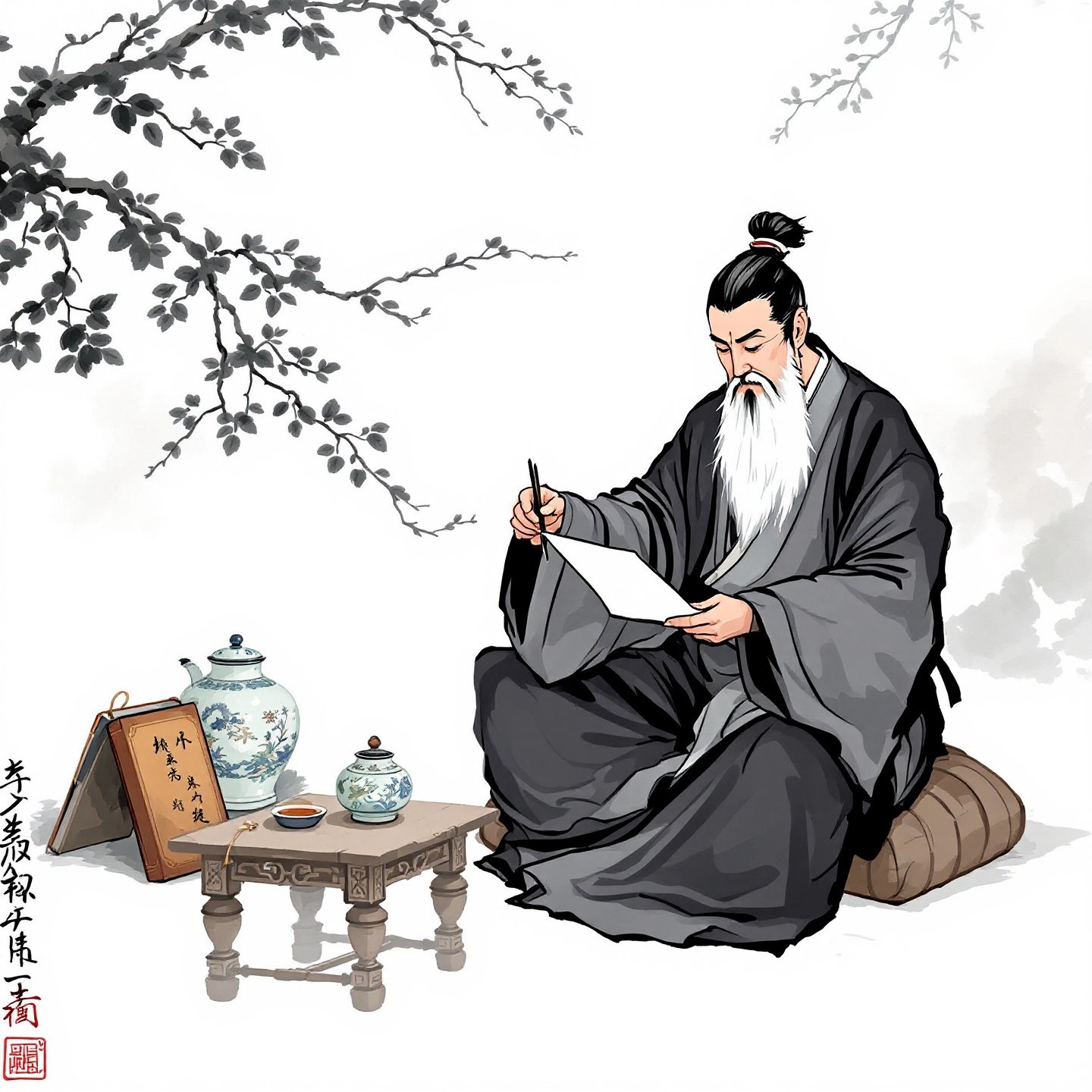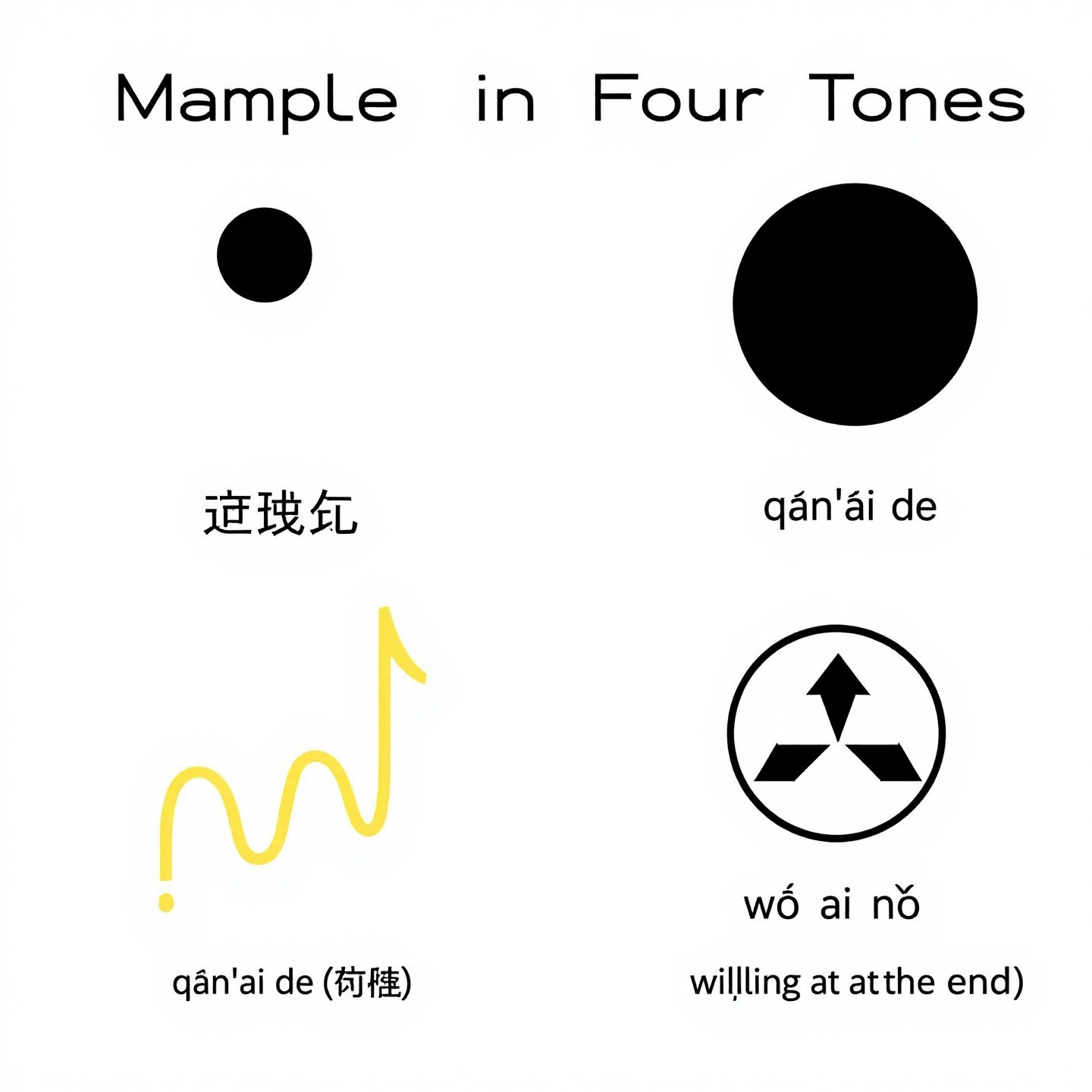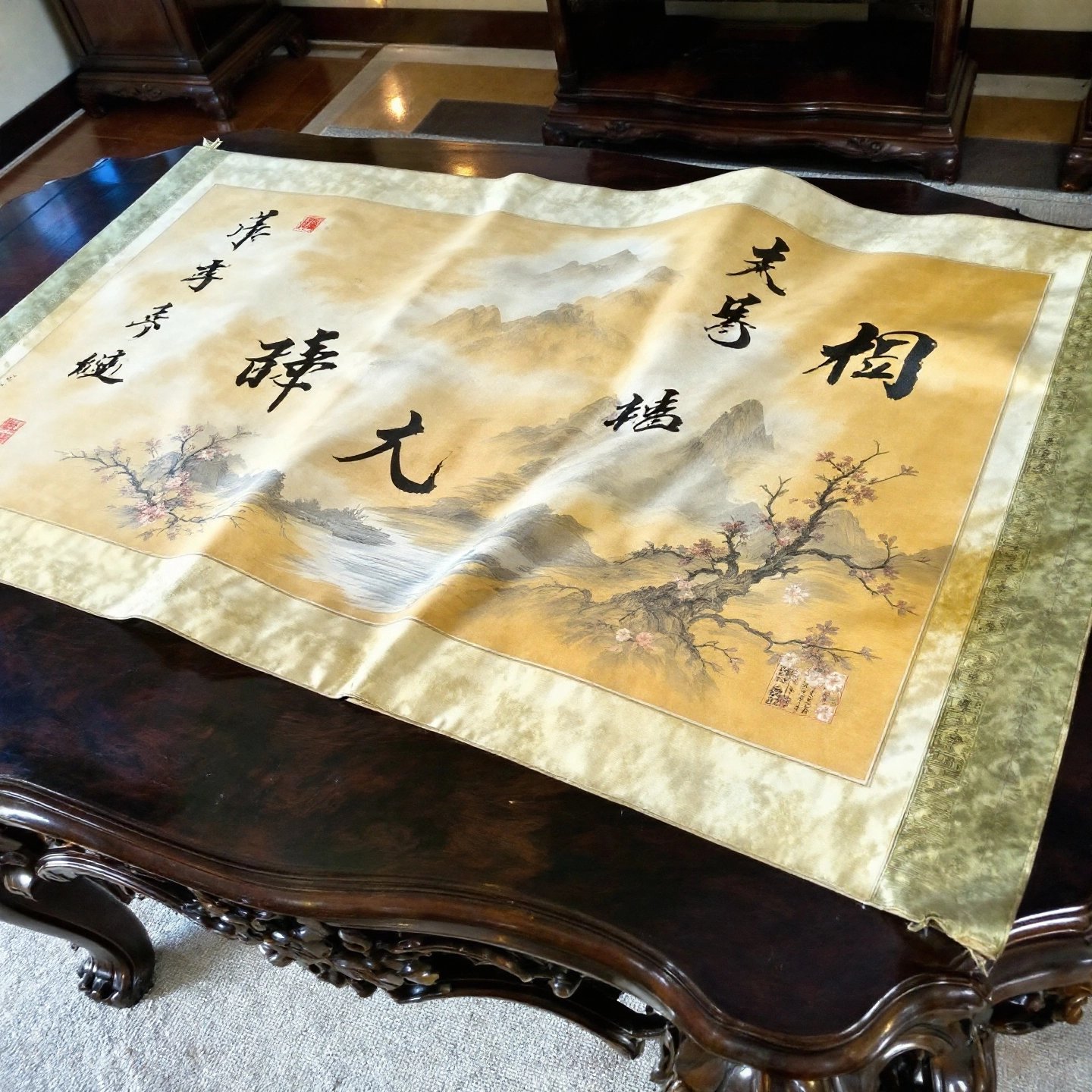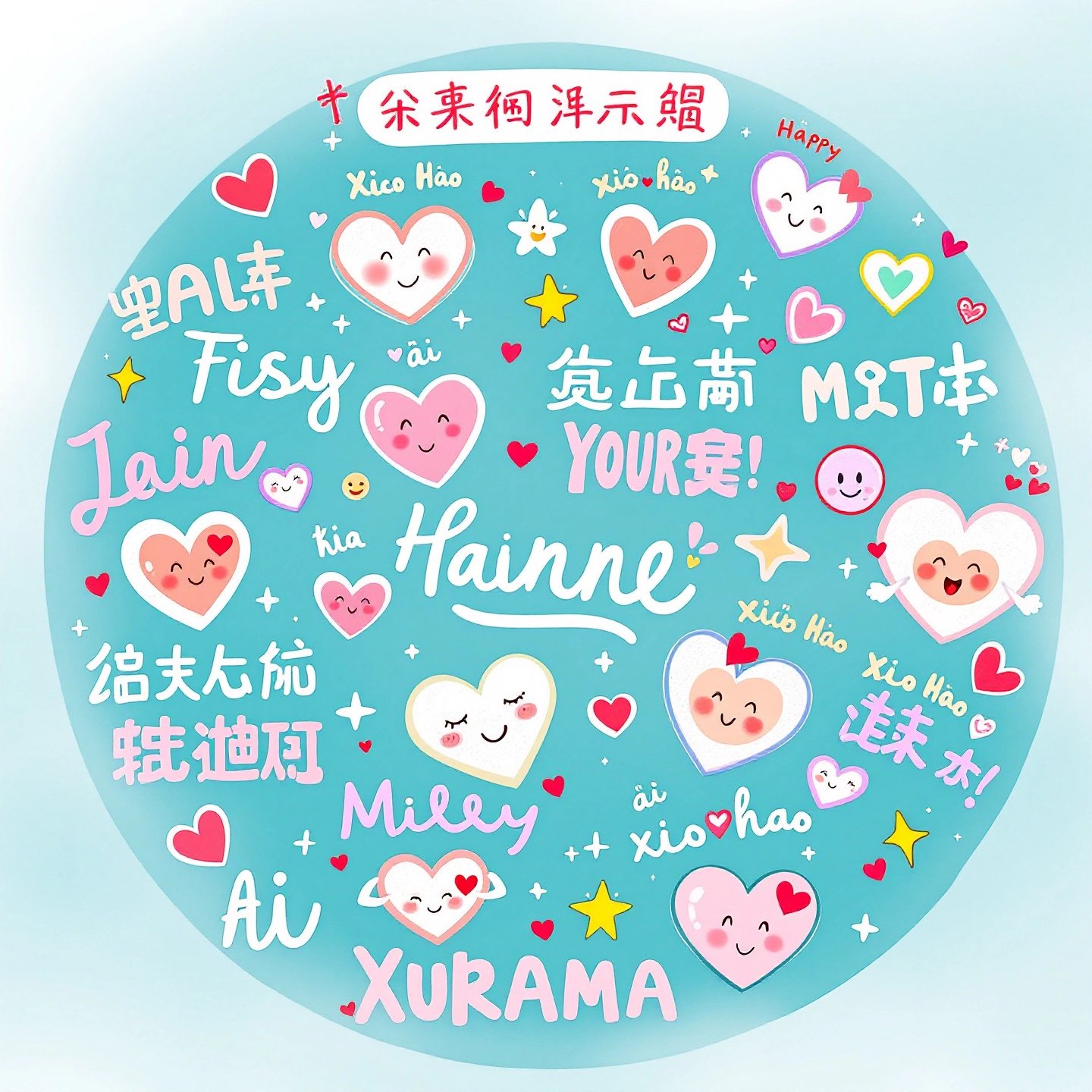Introduction to Chinese Endearments
Have you ever wondered how a simple word can deepen a relationship? In Chinese culture, terms of endearment—like 宝贝 (bǎobèi) for "baby" or 亲爱的 (qīn’ài de) for "dear"—are more than just affectionate nicknames. They are bridges to emotional intimacy, woven into daily interactions between loved ones, family, and close friends.
Chinese endearments reflect the culture's emphasis on harmony and relational bonds. Unlike Western equivalents, these terms often carry layered meanings—conveying respect, warmth, and even playful teasing. For example:
- Romantic relationships: Couples might use 心肝 (xīngān), literally "heart and liver," to express how precious their partner is.
- Family ties: Parents often call children 小胖 (xiǎo pàng), a teasing yet affectionate term meaning "little chubby," to highlight their adorable qualities.
- Friendships: Close friends might address each other as 老铁 (lǎo tiě), or "old iron," symbolizing unbreakable trust.
However, cultural context is key. A term like 小仙女 (xiǎo xiānnǚ), meaning "little fairy," might sound whimsical in English but conveys deep admiration in Chinese. Misusing these phrases—or applying them too casually—can lead to awkwardness. This article will guide you through the nuances, ensuring your words resonate authentically.
Ready to explore how these heartfelt expressions can transform your connections? Let’s begin.
Understanding the Essence of Chinese Endearments
Ever wondered why a simple term like 宝贝 (bǎobèi)—"treasure"—can melt hearts in Chinese culture? Unlike Western endearments, Chinese affectionate terms are deeply rooted in emotional and cultural layers, making them uniquely powerful in fostering intimacy.
Core Concepts: More Than Just Words
Chinese endearments often blend affection with cultural values. For example:
- Family-Centric Language: Terms like 心肝 (xīngān)—"heart and liver"—symbolize how a loved one is as vital as organs, reflecting Confucian ideals of familial bonds.
- Playful Teasing: Nicknames such as 小胖 (xiǎo pàng)—"little chubby"—might sound odd in English but convey warmth and familiarity in Chinese contexts.
- Romantic Nuances Couples use 亲爱的 (qīn’ài de)—"dear"—not just for sweetness but to subtly express respect and commitment.
Emotional Resonance in Everyday Use
In Chinese-speaking communities, these terms aren’t reserved for special moments. They’re woven into daily life:
- A mother might call her child 宝贝 (bǎobèi) while packing lunch, embedding love into routine actions.
- Friends might greet each other with 老铁 (lǎo tiě)—"old iron"—to reinforce unspoken trust.
This cultural depth makes Chinese endearments a fascinating study in how language shapes relationships. Next, we’ll explore their historical roots—from ancient poetry to modern slang—to uncover why these phrases endure.

Cultural Roots Behind Common Terms
Have you ever stopped to wonder why certain Chinese endearments feel so deeply affectionate? The answer lies in centuries of cultural evolution, where language and values intertwined to create expressions that resonate emotionally even today.
Confucian Influence on Affectionate Language
Confucianism, with its emphasis on hierarchical yet harmonious relationships, laid the foundation for many Chinese terms of endearment. The philosophy's five basic relationships—ruler-subject, father-son, husband-wife, elder-younger, and friend-friend—shaped how affection was expressed:
- Filial Piety (孝 xiào): Terms like 宝贝 (bǎobèi) for children reflect the parent-child bond, blending care with duty.
- Reciprocal Respect: Couples might use 亲爱的 (qīn’ài de) to balance love with mutual obligation, mirroring Confucian ideals.
Ancient Literature’s Poetic Legacy
Classical Chinese poetry and literature infused endearments with lyrical beauty. For example:
- 心肝 (xīngān): Literally "heart and liver," this term appears in ancient texts to signify irreplaceable love, later becoming a romantic endearment.
- 小仙女 (xiǎo xiānnǚ): Inspired by folklore, this "little fairy" nickname captures admiration rooted in mythical storytelling.
Family Values in Modern Nicknames
Traditional family-centered values still echo in contemporary terms:
- Repetitive Characters: Nicknames like 宝宝 (bǎobǎo) for "baby" use reduplication (叠词 diécí) to convey tenderness, a practice dating back to imperial China.
- Regional Flavors: Dialectal terms such as 阿妹 (ā mèi) in Southern China preserve ancient prefixes (阿 ā) once common in familial address.
From Confucian ethics to Tang Dynasty verses, Chinese endearments are more than words—they’re cultural artifacts. Next, we’ll see how these historical gems are used in modern romantic relationships.
Expressing Affection in Romantic Relationships
What’s the secret to keeping romance alive in Chinese relationships? Often, it’s the playful yet meaningful terms of endearment couples use daily. Unlike generic Western pet names like "honey" or "babe," Chinese romantic nicknames blend affection with cultural nuance—each carrying its own story and emotional weight.
Gender-Neutral Terms for Sweethearts
Some endearments work beautifully for any partner, regardless of gender:
- 亲爱的 (qīn’ài de): The Chinese equivalent of "darling," this classic term is widely used in both casual and serious relationships. Its literal meaning—"beloved one"—reflects deep affection.
- 宝贝 (bǎobèi): Meaning "treasure," this nickname conveys how cherished someone is. It’s slightly more playful than 亲爱的, akin to calling someone "my everything."
Nicknames for Boyfriends
Chinese women often use these terms to show admiration and intimacy:
- 老公 (lǎo gōng): Literally "old husband," this term is commonly used for both boyfriends and spouses, signaling long-term commitment.
- 男神 (nán shén): "Male god"—a playful way to praise a boyfriend’s looks or talents, often used humorously or flirtatiously.
Nicknames for Girlfriends
Men might use these affectionate phrases to make their partners feel special:
- 老婆 (lǎo pó): The counterpart to 老公, meaning "old wife." Like its male version, it’s used for both girlfriends and wives.
- 小公主 (xiǎo gōngzhǔ): "Little princess"—a term that blends adoration with a touch of humor, often used when spoiling a partner.
Layered Meanings in Everyday Use
These terms aren’t just sweet nothings—they reflect cultural values:
- Respect Meets Romance: Terms like 先生 (xiānshēng, "mister") sound formal but can be endearing when used privately, showing admiration with a hint of elegance.
- Family-Inspired Intimacy: Calling a partner 哥哥 (gēge, "older brother") or 妹妹 (mèimei, "younger sister") might seem odd in the West, but in Chinese culture, it symbolizes closeness akin to family bonds.
From playful teasing to lifelong commitment, Chinese romantic endearments add depth to relationships. Next, we’ll explore how these affectionate terms extend beyond couples to strengthen family ties.

Strengthening Family Bonds Through Endearing Words
Ever noticed how a simple nickname can make a child's face light up? In Chinese families, terms of endearment are powerful tools to nurture warmth and belonging. From playful monikers for kids to respectful titles for elders, these phrases weave an invisible thread of connection through generations.
Affectionate Terms for Children
Chinese parents often use these tender expressions:
- 宝贝 (bǎobèi): "Treasure"—the most universal term of endearment for children, conveying they're cherished.
- 宝宝 (bǎobǎo): "Baby"—often used for toddlers, with reduplication adding sweetness.
- 小心肝 (xiǎo xīngān): "Little heart and liver"—emphasizing how central the child is to parents' lives.
Gender-Specific Nicknames
Some endearments highlight a child's qualities:
- For daughters: 小公主 (xiǎo gōngzhǔ) ("little princess") or 小仙女 (xiǎo xiānnǚ) ("little fairy")
- For sons: 小帅哥 (xiǎo shuàigē) ("little handsome guy") or 小老虎 (xiǎo lǎohǔ) ("little tiger"—denoting energy)
Family-Wide Expressions of Affection
The entire family tree has special terms:
- Grandparents: 爷爷 (yéye)/奶奶 (nǎinai) for paternal grandparents; 外公 (wàigōng)/外婆 (wàipó) for maternal grandparents
- Parents: 爸爸 (bàba) and 妈妈 (māma) are standard, while 老爸 (lǎobà)/老妈 (lǎomā) add casual warmth
- Extended family: Terms like 姑姑 (gūgu) for paternal aunt or 舅舅 (jiùjiu) for maternal uncle show respect through precise titles
These terms do more than identify relationships—they create emotional closeness. A child called 宝贝 grows up feeling valued, while addressing elders properly maintains family harmony. Next, we'll explore how these endearments translate into everyday phrases and nicknames.
Chinese Endearments Examples
Ever wondered how Chinese endearments sound in real life? These affectionate nicknames aren’t just words—they’re woven into daily conversations, adding warmth to relationships. Whether you’re addressing a loved one, a friend, or even a colleague, these terms adapt seamlessly to context and intimacy levels. If you'd like to explore more cool Chinese nicknames, check out this blog post: https://www.oldwesthistory.net/blog/cool-chinese-nicknames
Everyday Romantic Endearments
Couples often use these sweet phrases:
- 亲爱的 (qīn’ài de): The go-to "darling," used in texts and casual chats alike.
- 老公/老婆 (lǎo gōng/lǎo pó): "Hubby" or "wifey," common even among unmarried partners.
- 笨蛋 (bèn dàn): "Silly egg"—playful teasing between lovers.
Family-Focused Nicknames
At home, you might hear:
- 宝宝 (bǎo bǎo): Parents cooing "baby" to toddlers.
- 小胖 (xiǎo pàng): "Little chubby," a teasing yet loving term for kids.
- 心肝宝贝 (xīn gān bǎo bèi): "Heart, liver, and treasure"—grandparents’ ultimate term of adoration.
Platonic and Friendly Terms
Among friends, nicknames lighten the mood:
- 老铁 (lǎo tiě): "Old iron"—slang for a ride-or-die friend.
- 吃货 (chī huò): "Foodie," a humorous label for snack-loving pals.
- 帅哥/美女 (shuài gē/měi nǚ): "Handsome guy" or "beauty," used lightheartedly.
From whispered sweet nothings to playful jabs among buddies, Chinese nicknames thrive in authenticity. Next, we’ll guide you on choosing the perfect term for any personality or scenario.
Tailoring Terms for Different Personalities and Situations
Choosing the right Chinese endearment is like picking the perfect gift—it should reflect the recipient’s personality and your relationship with them. Whether you’re addressing a romantic partner, a family member, or a close friend, the right term can deepen your connection. Here’s how to select the most fitting expressions for any scenario.
Matching Endearments to Personal Traits
Chinese nicknames often highlight a person’s unique qualities. Consider these examples:
- For the playful and cheerful: 开心果 (kāi xīn guǒ)—"happy nut"—for someone who always brings joy.
- For the elegant and refined: 女神 (nǚ shén)—"goddess"—to compliment grace and beauty.
- For the strong and dependable: 大树 (dà shù)—"big tree"—symbolizing stability and support.
Regional and Dialectal Variations
China’s diverse dialects add colorful twists to endearments:
- Northern China: 哥们儿 (gē menr)—"buddy"—is a casual term among friends.
- Southern China: 阿妹 (ā mèi)—"little sister"—is a warm, familial term in Cantonese-speaking areas.
- Taiwan: 麻吉 (má jí)—from "match"—is slang for a best friend.
Formal vs. Casual Settings
The context matters as much as the relationship:
- Formal occasions: Opt for respectful terms like 先生 (xiān shēng) ("mister") or 女士 (nǚ shì) ("madam").
- Casual gatherings: Playful nicknames like 吃货 (chī huò) ("foodie") or 睡神 (shuì shén) ("sleep god") add humor among friends.
- Romantic settings: Intimate terms like 心肝 (xīn gān) ("heart and liver") or 亲爱的 (qīn’ài de) ("dear") convey deep affection.
By aligning your choice of endearment with personality, region, and context, you’ll not only sound more natural but also strengthen your bonds. Next, we’ll help you master the pronunciation of these heartfelt phrases to ensure your words hit the right note.

Practical Tips for Pronunciation and Usage
Ever worried your heartfelt Chinese endearment might come out all wrong? Mastering pronunciation is key to ensuring your affectionate words sound natural—not awkward. Chinese tones can make or break your message, so let’s break down how to get them right.
Mastering the Four Tones
Chinese is a tonal language, meaning the pitch of a word changes its meaning. Here’s how to apply this to common endearments:
- First tone (high and flat): As in 亲爱的 (qīn’ài de)—keep “qīn” steady and high, like singing a musical note.
- Second tone (rising): Like the “ái” in 宝贝 (bǎobèi)—think of asking a question in English (“Really?”).
- Third tone (dipping): As in 老公 (lǎogōng)—start mid, drop low, then rise slightly.
- Fourth tone (sharp fall): Like the “bèi” in 宝贝—imagine giving a firm command (“Stop!”).
Common Pitfalls to Avoid
Even small missteps can lead to confusion or unintended meanings:
- Tone mix-ups: Saying mā (妈, “mom”) with a first tone instead of mà (骂, “scold”) with a fourth tone changes the word entirely.
- Overemphasizing syllables: Unlike English, Chinese words flow evenly. Don’t stress one part of xiǎo gōngzhǔ (“little princess”) too heavily.
- Ignoring the “r” sound: In terms like 宝贝儿 (bǎobèir), the light “r” adds affection—don’t skip it!
Practice Makes Perfect
Try these techniques to refine your pronunciation:
- Shadow native speakers: Listen to clips from resources like Mandarin HQ and repeat immediately after.
- Record yourself: Compare your 老婆 (lǎopó) to audio samples—adjust tones as needed.
- Use mnemonics: Link tones to visual cues (e.g., a falling rock for the fourth tone).
With these tips, you’ll soon be whispering 心肝 (xīngān) or teasing 小胖 (xiǎo pàng) like a native. Next, we’ll navigate potential cultural missteps to keep your endearments genuine and respectful.
Avoiding Missteps and Embracing Genuine Connection
Ever accidentally called someone by the wrong endearment and cringed at their reaction? In Chinese culture, where words carry deep cultural weight, using terms of endearment incorrectly can lead to awkward moments—or even offense. But don’t worry! With a few mindful strategies, you can navigate these linguistic nuances gracefully.
Dialectal Differences: One Term, Many Meanings
China’s regional dialects can transform a sweet phrase into something unintended. For example:
- 老公 (lǎogōng): Means “husband” in Mandarin but can sound overly formal or even sarcastic in Cantonese contexts.
- 阿妹 (āmèi): A tender term for “little sister” in Southern China but might confuse Northerners unfamiliar with the prefix 阿 (ā).
Pro Tip: When in doubt, stick to universally understood Mandarin terms like 亲爱的 (qīn’ài de, “dear”) or 宝贝 (bǎobèi, “treasure”).
Generational Gaps: Playful vs. Traditional
Younger generations often play with slang, while elders prefer classic expressions:
- Teens/Young Adults: Might use 男神 (nánshén, “male god”) or 小姐姐 (xiǎojiějie, “little miss”) for flirtatious teasing.
- Older Generations: Favor respectful terms like 先生 (xiānsheng, “mister”) or 太太 (tàitai, “madam”).
Watch Out: Calling a grandparent 宝贝儿 (bǎobèir, “baby”) could seem infantilizing—opt for 爷爷/奶奶 (yéye/nǎinai, “grandpa/grandma”) instead.
Staying Authentic: 3 Key Rules
- Context Matters: Reserve intimate terms like 心肝 (xīngān, “heart/liver”) for close relationships.
- Observe First Listen to how native speakers address each other before adopting new terms.
- When Unsure, Ask A polite “你喜欢怎么被称呼?” (Nǐ xǐhuān zěnme bèi chēnghu? “What do you like to be called?”) shows cultural sensitivity.
Remember, the goal isn’t perfection—it’s heartfelt connection. Even if your tones wobble, sincerity bridges gaps. Ready to wrap up? Let’s reflect on how these tiny words can transform relationships.
Conclusion
Have you ever noticed how a single word can bridge hearts across cultures? Throughout this journey into Chinese endearments, we've seen how these affectionate terms—from playful nicknames like 小胖 (xiǎo pàng) to romantic whispers of 心肝 (xīngān)—do more than label relationships. They weave emotional connections, honoring China's rich cultural tapestry while fostering intimacy in everyday life.
The Power of Authentic Expression
Using Chinese terms of endearment isn't just about vocabulary—it's about embracing a mindset:
- Cultural Appreciation: Phrases like 亲爱的 (qīn’ài de) or 宝贝 (bǎobèi) carry centuries of familial and poetic history, blending respect with warmth.
- Relationship Depth: Whether calling a partner 老公 (lǎogōng) or a child 宝宝 (bǎobǎo), these terms nurture bonds through intentional language.
- Cross-Cultural Connection: Mastering tones and context (like avoiding 阿妹 (āmèi) in formal settings) shows respect for linguistic nuances.
Your Next Steps
Ready to put these authentic Chinese nicknames into practice? Start small:
- Pick One Term: Try using 老铁 (lǎo tiě) with a close friend or 小仙女 (xiǎo xiānnǚ) with a loved one.
- Listen and Learn: Watch Chinese dramas or listen to podcasts to hear endearments in natural contexts.
- Embrace Mistakes Even mispronounced, your effort will likely be met with smiles—and corrections that deepen understanding.
From ancient Confucian values to modern-day WeChat messages, Chinese endearments remind us that language is alive with feeling. Whether you're strengthening family ties, kindling romance, or building friendships, these words offer keys to genuine connection. So go ahead—let your next 宝贝儿 (bǎobèir) or 心肝宝贝 (xīngān bǎobèi) be a step toward richer, more meaningful relationships.
Chinese Endearments FAQs
1. What do Chinese call their lovers?
Common romantic terms include 亲爱的 (qīn’ài de, 'darling'), 宝贝 (bǎobèi, 'treasure'), and 老公/老婆 (lǎogōng/lǎopó, 'hubby/wifey'). These blend affection with cultural respect, often used regardless of marital status.
2. How do nicknames work in China?
Chinese nicknames often use prefixes like 小 (xiǎo, 'little') or 阿 (ā) for familiarity (e.g., 阿妹 for 'little sister'). They reflect traits (e.g., 小胖 for 'chubby') or relationships (e.g., 老铁 for 'close friend').
3. What are cute Chinese terms for children?
Parents use 宝宝 (bǎobǎo, 'baby'), 小心肝 (xiǎo xīngān, 'little heart/liver'), or playful terms like 小公主 (xiǎo gōngzhǔ, 'little princess') to express adoration and familial bonds.
4. How to avoid mistakes with Chinese endearments?
Reserve intimate terms like 心肝 (xīngān) for close relationships. Observe native speakers first, and when unsure, ask politely, '你喜欢怎么被称呼?' (What do you like to be called?).
5. Are Chinese endearments gender-specific?
Some terms are gendered (e.g., 男神 nánshén for 'male god'), but many like 亲爱的 are neutral. Context matters—family terms (e.g., 哥哥 for 'older brother') may imply closeness beyond literal meanings.



